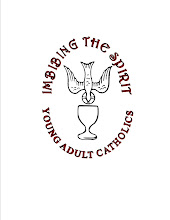How do we make sure we're "well informed" and what exactly does that mean? Well it means making decisions based on your Conscience (CCC#1778) by employing the virtue of Prudence (CCC#1806).
The Church for her part does not dictate for whom or how one is to vote, but does seek to assist her members in forming consciences and right judgement in light of the teachings of Christ as they have been traditioned through the Church. We are people of both faith and reason and as such "are called to bring truth to political life and to practice Christ’s commandment to love one another (Jn13:34)."
For their part the Bishops, in their capacity and authority as teachers, have released a document called The Challenge of Forming Consciences for Faithful Citizenship. In it the Bishops say:
As such the bishops have highlighted seven themes from Catholic Social Teaching to illustrate the importance of keeping our focus on our common humanity and the sanctity of that humanity.A consistent ethic of life should guide all Catholic engagement in political life. This Catholic ethic neither treats all issues as morally equivalent nor reduces Catholic teaching to one or two issues. It anchors the Catholic commitment to defend human life and other human rights, from conception until natural death, in the fundamental obligation to respect the dignity of every human being as a child of God.
Catholic voters should use Catholic teaching to examine candidates’ positions on issues and should consider candidates’ integrity, philosophy, and performance.
So we know what the church considers to be important - which is a broad range of issues. But where do the parties stand on these issues amongst the many others? We've heard from the pundits, the media and the folks all around us that this years election is perhaps the 'most crucial election in our lifetime.' So for our October meeting we're going to find out just that - in as much as the constraints of our meeting time allows.
In order to do this more fully, we've invited a person from the two major parties to come and speak with us.
Representing the Republican Party will be Wesley Donehue. Wesley is a political strategist and owner of Under The Power Lines a political consultancy firm. He's worked on many campaigns including the SC State Senate Republican Caucus and Sen. Jim DeMint.
- See the Republican Party platform here (it's a .pdf file)
- See the Democratic Party platform here (also a .pdf file)

In the end though, as we conclude our evening's session we must remember what else the Bishops remind us to do. "We must look beyond party politics, to analyze campaign rhetoric critically, and to choose their political leaders according to principle, not party affiliation or mere self-interest” (USCCB, Living the Gospel of Life, no. 33), in our efforts to discern who we're going to vote for come November, not just for President, but all the way down ticket to dog catcher.
So we look forward to seeing you all at Delaney's in 5pnts October 8 at 6pm for some beer and food and great conversation. Until then!
~Matt







